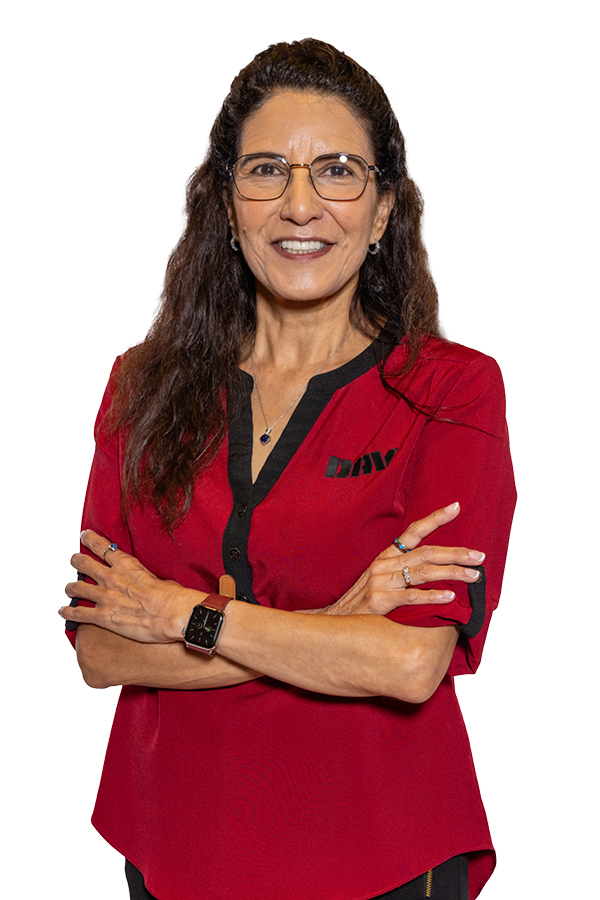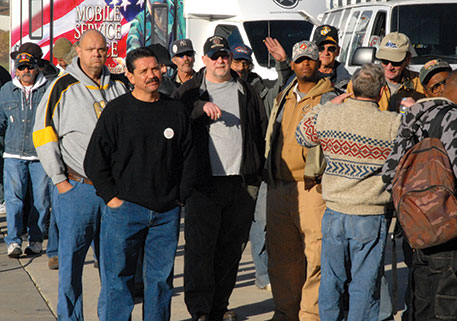This story is part of DAV’s 2024 report, Women Veterans: The Journey to Mental Wellness. The report is a comprehensive assessment of the unique factors contributing to the alarming rates of suicide among women veterans and how the system charged with their mental health care can and must do better. Learn more at womenveterans.org.
 The end of DAV National Commander Nancy Espinosa’s service in the Army was marked by obstacles and loss. Following the birth of her second child, she was diagnosed with endometriosis—a painful condition in which tissue grows outside of the uterus. She had to have an emergency hysterectomy to remove the organ, along with a bowel resection. Doctors also told her they found an aggressive cancer that could leave her with just six months to live. Espinosa called it a traumatic experience.
The end of DAV National Commander Nancy Espinosa’s service in the Army was marked by obstacles and loss. Following the birth of her second child, she was diagnosed with endometriosis—a painful condition in which tissue grows outside of the uterus. She had to have an emergency hysterectomy to remove the organ, along with a bowel resection. Doctors also told her they found an aggressive cancer that could leave her with just six months to live. Espinosa called it a traumatic experience.
Her monthslong recovery from surgery was quickly followed by the devastating loss of her sister, Margaret.
“It was so unexpected,” Espinosa said. “I still miss her, even though it’s been more than 30 years.”
Soon after, Espinosa’s young stepdaughter unexpectedly died. Espinosa found herself in a deep depression and decided, with the support of her family, to take a hardship discharge from the Army. To continue her military career the only way she could, she transitioned into the New Mexico National Guard.
Espinosa turned to the Department of Veterans Affairs for health care but felt her local medical center at the time was ill-equipped to address women’s health care.
“There was very little support for women veterans, and especially female issues. They didn’t know how to deal with that,” she said, adding that she went outside of the VA for gender-specific care.
“As far as mental health, I didn’t even realize that was an option with the VA,” she said. “I mean, if they couldn’t handle my medical care, I didn’t feel like they were prepared to help treat my depression.”
So she went outside the VA for mental health care, too.
Espinosa said the VA has made notable strides in understanding and caring for women veterans since then. The VA worked hard to establish a comprehensive health and gender-specific care model for women. In 2010, it established the Women’s Health Research Network, making the VA a true knowledge leader in women veterans health, and continues to add specialized care services for women, including the Reproductive Mental Health Consultation Program.
“I do realize that women veterans are some of the least likely to get VA services, and I was in that same boat when I got out of the military,” Espinosa said, adding that her VA care has significantly improved over the years.
“We just need to educate women veterans that those services are there and that DAV and their fellow veterans are on their side.”





